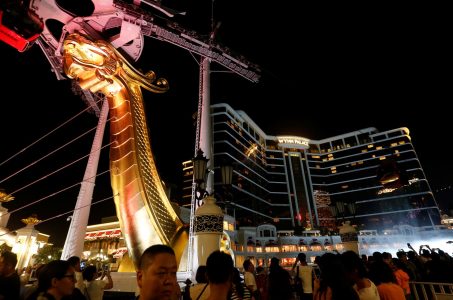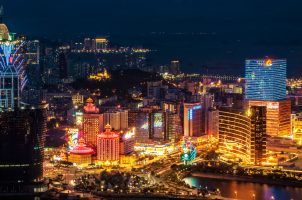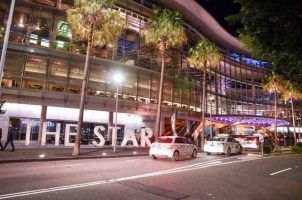Marina Bay Sands Expansion Likely More Profitable Than Rival Resorts World, Say Analysts
Posted on: June 30, 2020, 11:30h.
Last updated on: June 30, 2020, 01:05h.
Over the next several years, Marina Bay Sands (MBS) and Resorts World Sentosa will invest an estimated $6.65 billion in sprucing up Singapore’s two integrated resorts. But analysts say the former has the advantage when it comes to generating a return on investment (ROI).

The two venues are among the most profitable in the world and have a duopoly in the city-state, which is one of the largest gaming markets in the Asia-Pacific region. Genting Singapore, the owner of Resorts World, is pledging to spend $3.22 billion over the next several years to expand that property. But those additions aren’t gaming-intensive, meaning ROI could disappoint.
Genting’s Singapore expansion sees SGD4.5 billion in capex in 2020 – 2024 and we do not expect an ROI of 10 percent on this investment, which is largely geared towards more room product and entertainment expansion,” according to Bernstein analysts.
Both venues have ample non-gaming amenities. For example, Resorts World is home to Universal Studios Singapore and the S.E.A. Aquarium. Attractions like those get visitors in the doors but don’t always translate to increased gaming revenue.
“Gaming remains the bread and butter of these large-scale integrated resorts. While non-gaming development, such as theme park and aquarium expansion, help boost visitation and drive traffic to Resorts World Sentosa property, they may do little to help drive gaming revenues,” said the research firm.
Putting on the Ritz
MBS, which is owned by Las Vegas Sands (LVS), has its own non-casino attractions, including the Art and Science Museum, Sands SkyPark, and Observation Deck atop the iconic roof of the resort. However, Sands’ Singapore expansion is focusing on gaming space and guest rooms.
The operator will add 1,000 slot machines and 2,000 meters of gaming space in additions that started last year running through 2023. Bringing more room supply to the market could help MBS capture a larger slice of the VIP market while bolstering ROI. The LVS property has long commanded significantly more high roller share than Resorts World.
“The new high-end hotel room inventory will drive international premium mass and VIP business to a much greater extent than what can be done at Resorts World Sentosa,” said the Bernstein analysts.
LVS management is likely targeting mid to high teens ROI for the Singapore enhancements. The city-state is the operator’s second-largest market after Macau. In any given quarter, MBS typically generates more revenue and earnings before interest, taxes, depreciation and amortization (EBITDA) than the Venetian and the Palazzo on the Las Vegas Strip combined.
Waiting for Payday
MBS and Resorts World Sentosa reopen tomorrow following a three-month shutdown forced by the COVID-19 pandemic. But it could be a while before the aforementioned investments pay off for the operators.
EBITDA across Asia-Pacific gaming markets could fall as much as 70 percent this year, as travel bans and temporary gaming property closures keep gamblers at bay.
Bernstein echoed sentiments of other brokerage houses that are saying it could be 2023 before Singapore’s gaming industry returns to 2019 levels.
Related News Articles
Macau Casino Stocks Rally as Some Travel Restrictions Ease
Macau Casinos Dealt Problematic Hand with Nongaming Obligations: Analyst
Most Popular
LOST VEGAS: ‘Tony The Ant’ Spilotro’s Circus Circus Gift Shop
Las Vegas Overstated F1 Race’s Vegas Impact — Report
Mega Millions Reportedly Mulling Substantial Ticket Price Increase
NoMad Hotel to Check Out of Park MGM on Las Vegas Strip
Most Commented
-
End of the Line for Las Vegas Monorail
— April 5, 2024 — 90 Comments -
Mega Millions Reportedly Mulling Substantial Ticket Price Increase
— April 16, 2024 — 8 Comments -
Long Island Casino Opponents Love New York Licensing Delays
— March 27, 2024 — 5 Comments
















No comments yet